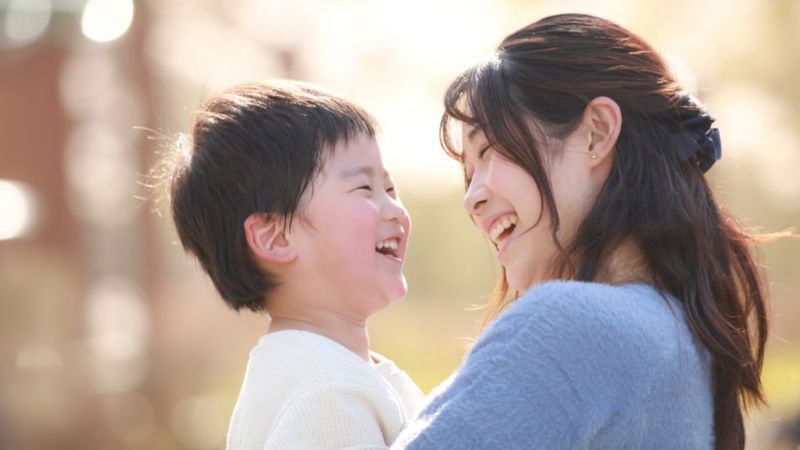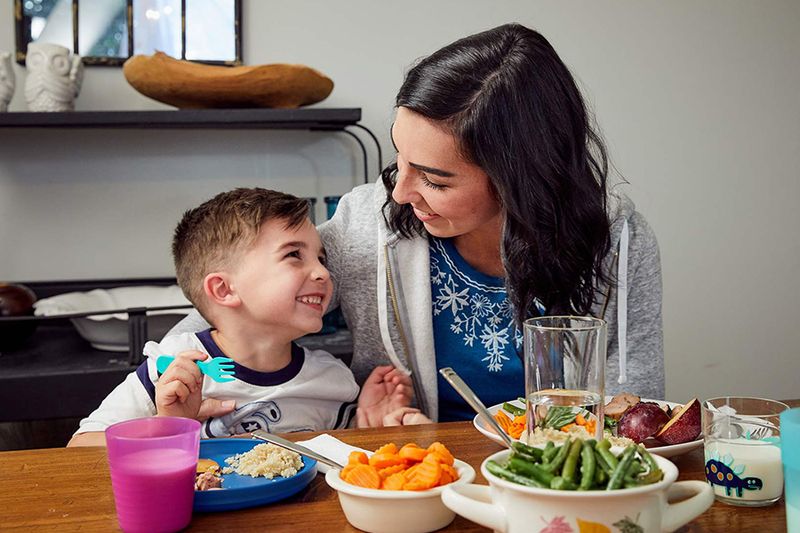17 Phrases Children Never Forget When Spoken By Their Parents (Even Decades Later)
Certain phrases spoken by parents have a lasting impression on children, echoing in their minds long after childhood. These words, whether supportive or critical, shape memories, influence decisions, and impact self-perception.
In this post, we explore 17 phrases that resonate deeply, highlighting the profound effect a parent’s words can have on their child’s psyche.
1. “I’m proud of you”

With just four words, a parent can fill a child with confidence and pride. “I’m proud of you” is a phrase that echoes in the halls of achievement, reminding children of their worth and potential. It’s not just about accomplishments; it’s about the recognition of effort and the affirmation that their hard work is valued.
These words can inspire children to aim higher and believe in themselves, fostering a sense of self-worth that endures through challenges. From a young age, this phrase becomes a cornerstone of their emotional foundation, supporting them in moments of doubt.
2. “Why can’t you be more like your sibling?”

In families, comparisons can be as cutting as they are common. “Why can’t you be more like your sibling?” is a phrase that often sows seeds of resentment and insecurity. It implies a lack of acceptance for who the child is, leading to a feeling of inadequacy.
This phrase can create a lifelong rivalry, affecting sibling relationships and self-esteem. Children may feel overshadowed, developing an inferiority complex that follows them into adulthood. Emphasizing individuality and unique strengths is crucial, as these words can otherwise linger bitterly.
3. “Because I said so”

“Because I said so” is a phrase that asserts authority without providing clarity. For many children, it signals the end of a discussion, often leaving them confused and frustrated. This phrase is a stamp of finality, discouraging curiosity and inquiry.
It can also contribute to a sense of powerlessness, teaching children to accept rules without understanding them. While sometimes used to quickly end a debate, its overuse can stifle a child’s desire to learn and understand the world around them. Offering explanations when possible fosters growth.
4. “You always mess things up”

Mistakes are part of learning, yet the phrase “You always mess things up” can leave a lasting scar. It suggests a pattern of failure, overshadowing successes and efforts. When children hear this, they may internalize it, believing they can’t do anything right.
This phrase erodes confidence, making children hesitant to try new things. It’s crucial to focus on the action, not the child’s character, to prevent long-term harm. Encouragement and understanding can replace negativity, helping children to view mistakes as opportunities to learn rather than failures to fear.
5. “You can talk to me about anything”

Trust is the cornerstone of any relationship, and “You can talk to me about anything” opens the door to honest communication. This phrase assures children that their thoughts and feelings are valued and respected. It creates a safe space for sharing, helping children feel understood and supported.
When parents consistently reinforce this message, it fosters a strong bond and encourages children to seek guidance without fear of judgment. Over time, this assurance builds a deep-rooted trust that can weather the storms of adolescence and beyond, promoting healthy communication skills.
6. “Don’t cry—it’s not a big deal”

Emotions are complex, and dismissing them can have unintended consequences. “Don’t cry—it’s not a big deal” may seem comforting, but it minimizes the child’s feelings. This phrase can teach children to suppress their emotions, leading to unresolved issues and emotional bottling.
Acknowledging a child’s feelings, regardless of the situation, is essential for emotional development. Encouraging children to express themselves freely, without judgment, fosters resilience and emotional intelligence. It’s important for parents to listen and validate, teaching children that all emotions are valid and worthy of expression.
7. “I love you no matter what”

Few phrases are as powerful as “I love you no matter what.” This expression assures children of unconditional love, reinforcing their sense of safety and belonging. It’s a promise that embraces them regardless of successes or failures, encouraging authenticity.
Knowing they are loved without conditions allows children to explore their identity and make mistakes without fear of losing affection. This foundational love fosters confidence and self-worth, supporting emotional well-being. Parents who consistently express this sentiment provide a nurturing environment where children thrive, secure in the knowledge that their value is inherent.
8. “You’re being dramatic”

“You’re being dramatic” can feel dismissive, trivializing a child’s emotions. This phrase often signals to children that their feelings are unwelcome or exaggerated, discouraging them from expressing themselves honestly. It’s important to recognize that children experience emotions intensely, and they need validation, not dismissal.
Understanding and empathy help children feel heard and respected, fostering emotional maturity. By acknowledging their perspectives, parents can guide them in managing emotions constructively. Listening without judgment strengthens the parent-child bond, encouraging open dialogue and emotional growth.
9. “You make me so happy”

Happiness shared is happiness multiplied. “You make me so happy” tells children that their presence brings joy, fostering a sense of belonging and importance. This phrase builds self-esteem by affirming their ability to contribute positively to others’ lives.
Children learn that their actions and existence have a meaningful impact, encouraging empathy and kindness. This expression of joy strengthens familial bonds, as children feel valued and cherished. By consistently sharing happiness, parents lay the groundwork for a loving, supportive relationship that lasts a lifetime.
10. “You’re embarrassing me”

Few phrases sting as much as “You’re embarrassing me.” This remark can make children feel scrutinized and inadequate, especially in public settings. It suggests that parental love and acceptance are conditional, based on behavior. Such comments can lead to self-consciousness and anxiety, making children wary of expressing themselves freely.
It’s essential to address behaviors privately, focusing on guidance rather than shame. Encouraging children to be themselves without fear of judgment fosters confidence and self-assurance, helping them to view mistakes as learning opportunities rather than sources of embarrassment.
11. “I believe in you”

Belief is a powerful motivator. “I believe in you” reassures children that they have the strength and capability to succeed. This phrase emboldens them to pursue their dreams and face challenges with confidence. Knowing their parents have faith in them can make all the difference, providing the courage to take risks and try new things.
This belief builds resilience, encouraging children to persevere in the face of adversity. Parents who consistently express their faith in their children help cultivate a mindset of growth and possibility, laying a foundation for lifelong achievement.
12. “You’re too much”

Energetic children can sometimes overwhelm, but “You’re too much” can feel like criticism. This phrase can make children feel like their natural exuberance is a flaw, rather than a wonderful part of their personality. It suggests that their energy and enthusiasm are burdens rather than gifts. Encouraging self-expression and channeling energy constructively is key.
Children should feel accepted and celebrated for who they are, not chastised for their spirited nature. Emphasizing the value of their vigor and curiosity nurtures a positive self-image and helps them harness their energy for good.
13. “I’m sorry—I was wrong”

Admission of fault is a powerful lesson in humility and integrity. “I’m sorry—I was wrong” shows children that even adults make mistakes, modeling accountability and the importance of genuine apologies. This phrase fosters an environment of mutual respect and understanding, encouraging children to own their actions and rectify wrongs.
It strengthens the parent-child relationship by demonstrating that everyone is working towards growth and understanding. Parents who are willing to apologize teach their children about forgiveness and the strength in vulnerability, creating a home where honesty and empathy thrive.
14. “You’ll never be good at that”

Few statements can curtail potential like “You’ll never be good at that.” It can discourage children from pursuing interests, building a narrative of failure before they’ve had a chance to try. This phrase can instill a fixed mindset, where abilities are seen as static rather than developable.
Encouraging perseverance and effort is crucial, as it inspires growth and resilience. Children need to hear that mistakes are part of the journey, and skills can be honed with practice. Support and belief can transform doubt into determination, fostering a lifelong love of learning.
15. “I’m so lucky to be your parent”

Gratitude expressed in “I’m so lucky to be your parent” strengthens familial bonds, creating a foundation of love and appreciation. This phrase reassures children that they are cherished for who they are, not just what they do. It instills a sense of worth and belonging, letting them know they are a source of joy.
Such expressions of gratitude foster a positive self-image and encourage reciprocal appreciation. They help children grow up feeling valued and respected, understanding that their presence is a gift in their parents’ lives, nurturing a loving environment.
16. “You should be grateful”

Gratitude is an essential life value, but “You should be grateful” can sometimes come with a tone of reproach. When delivered without context, it might feel like an obligation rather than a genuine sentiment. Teaching children to appreciate what they have should be about cultivating an authentic sense of gratitude, not guilt.
Encouraging them to recognize and value their blessings fosters a positive outlook and contentment. Discussions about gratitude should be open and nurturing, highlighting the joy of appreciating life’s gifts. This approach helps children develop genuine thankfulness and generosity.
17. “You’re stronger than you think”

“You’re stronger than you think” is a boost to a child’s self-belief. This phrase reassures them of their inner strength, encouraging perseverance in challenging times. It highlights resilience, inspiring children to push through obstacles and discover their capabilities. When faced with difficulties, these words can fuel determination and courage, showing children that they possess the strength to overcome adversity.
Support from parents helps them realize that strength isn’t just physical; it’s emotional and mental as well. This encouragement builds resilience, fostering a mindset that embraces challenges with optimism.







